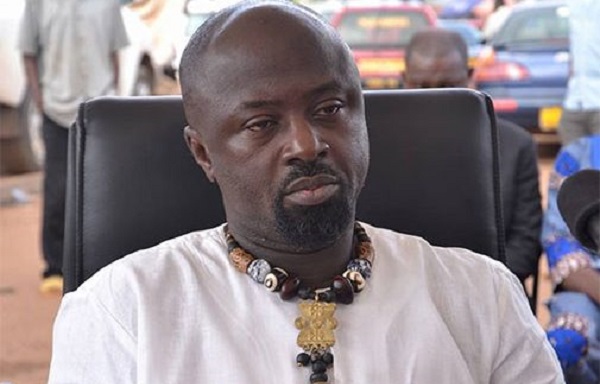
Audio By Carbonatix
The CEO of the Kumasi Metropolitan Assembly (KMA), Richard Ofori Agyemang Boadi, has admitted that previous decongestion efforts have failed to resolve the city's chronic congestion problems, attributing the shortcomings to flawed implementation methods.
Attempts to sanitise Kumasi, ensure a free flow of traffic and place traders at designated locations have been unsuccessful.
The recent fire outbreak that swept through Adum PZ is a reminder of the consequences of congestion in the Ashanti regional capital, as firefighters struggled to gain entry and access to the market to douse the flames.
Again, fatal knockdowns at Adum, Kejetia and Abrepo Junction have been reported multiple times as traders take over pavements and the shoulders of the main roads.
READ ALSO: 3 confirmed dead in Adentan flood, MCE blames construction on waterways
Illegal traders always find ways to reclaim cleared spaces within weeks after decongestion exercises, and the mayor is exploring new methods.
About 80% of cleared zones now host vendors again, with more makeshift stalls as traffic congestion returns to pre-operation levels.
“I am of the view that previous decongestion exercises we have embarked on have not been successful because of the approaches,” he lamented in an interview on the Joy Super Morning Show on Monday, May 19.
“If we are to deploy about 300 police officers in Adum to get everybody off, it will come at a cost to the assembly. Beyond three months, when the finances of the assembly cannot put 300 officers on the road, you will have to send them back, and then they [traders] will come back.
Again, the decongestion exercises have not gone down well with some traders.
"Where should we go? The new markets have no customers," argued Ama Serwaa, a 15-year veteran trader at Kejetia.
Her sentiment echoes across the trader community, with many viewing the exercise as punitive rather than restorative.
However, the mayor has vowed to ensure sustainability by exploring other alternatives.
“When I took over, there were about six liaison officers who were leading our urban guards to provide security within the metropolis. So we will put them together with a team of about two national security operatives and some city guards. And we are patrolling the areas that we have asked the people to leave so that we can have some free flow of traffic in the central business district, and I think we are getting some results,” he stated.
Urban planners warn that without sustainable relocation plans and economic alternatives, Kumasi's decongestion efforts will continue to fail.
The KMA faces mounting pressure to deliver lasting solutions as the city's population and commercial activities grow.
Latest Stories
-
Barca dominate Levante to claim La Liga top spot
4 hours -
Managing Man Utd the ‘ultimate role’ – Carrick
5 hours -
‘Educate yourself and your kids’ – Fofana and Mejbri racially abused
5 hours -
Vinicius scores but Real Madrid beaten by Osasuna
5 hours -
Arokodare & Mundle latest players to be racially abused
5 hours -
GPL 2025/26: Hohoe United hold Aduana FC in Dormaa
5 hours -
Eze ‘wanted to prove something’ as he torments Spurs again
5 hours -
US ambassador’s Israel comments condemned by Arab and Muslim nations
5 hours -
Man jailed nine months for stealing
6 hours -
Woman found dead at Dzodze, police launch investigation
6 hours -
Group of SHS students allegedly assault night security guard at BESS
6 hours -
Jasikan Circuit Court remands two for conspiracy, trafficking of narcotics
6 hours -
GPL 2025/26: Asante Kotoko beat Young Apostles to go fourth
6 hours -
T-bills auction: Interest rates fell sharply to 6.4%; government exceeds target by 170%
9 hours -
Weak consumption, high unemployment rate pose greater threat to economic recovery – Databank Research
9 hours

